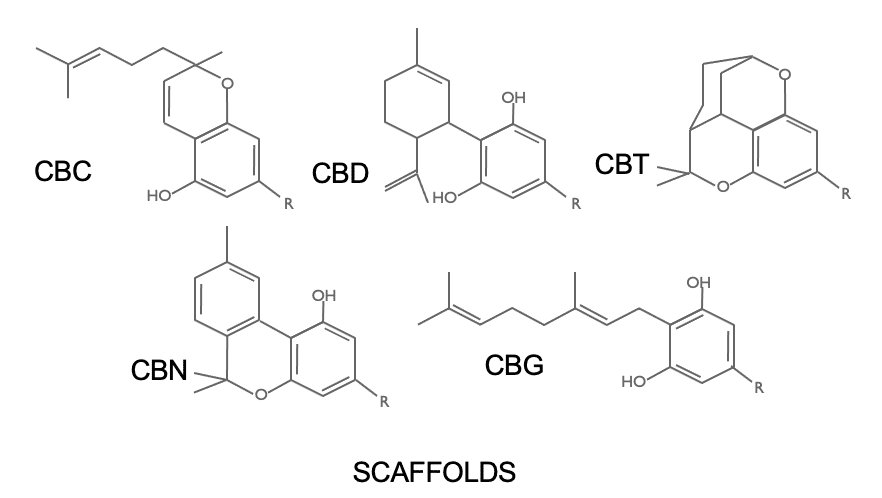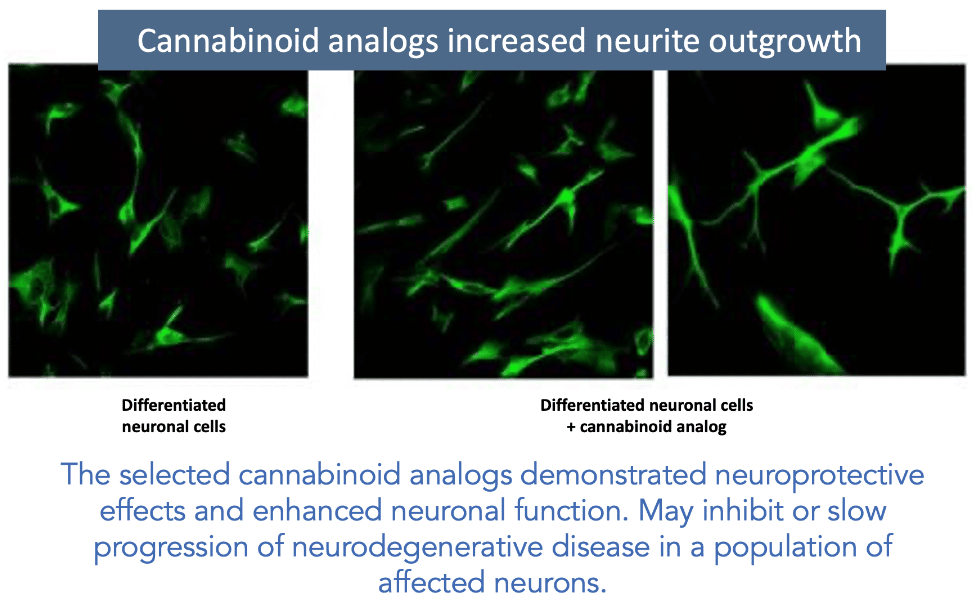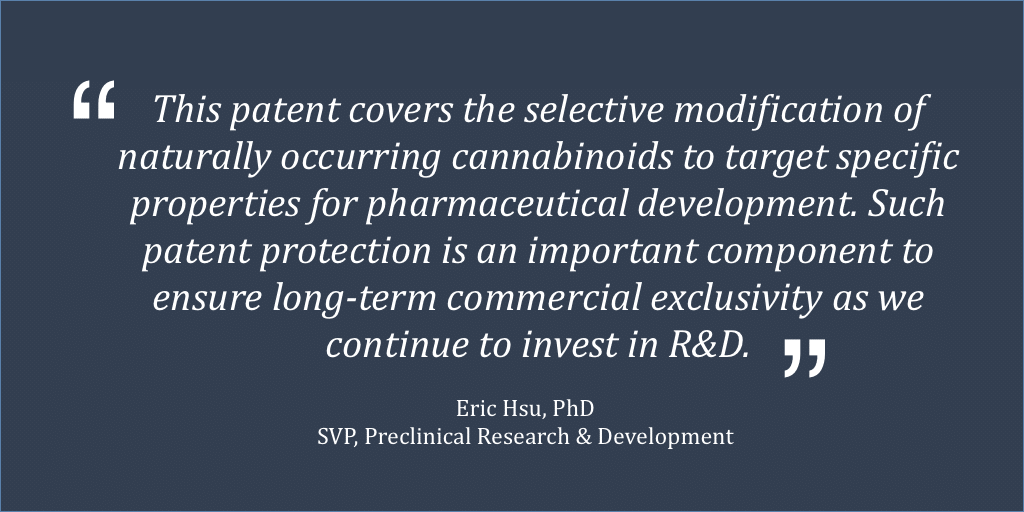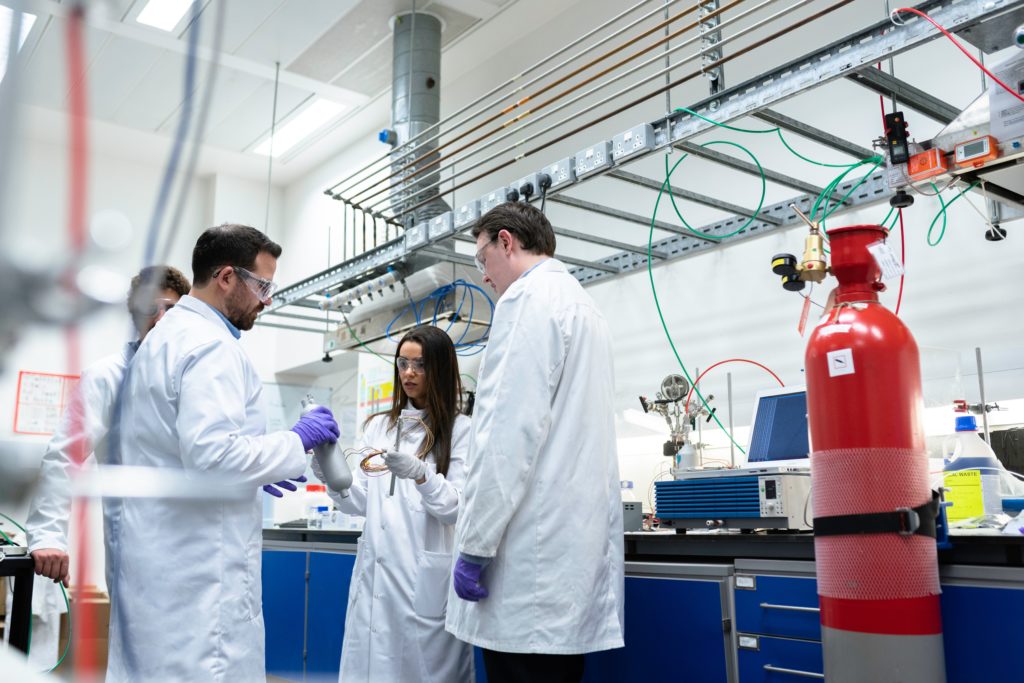A Growing Library of Proprietary Small Molecule Analogs
InMed has an extensive library of novel small molecule analogs. These proprietary analogs are patentable new chemical entities (NCEs) for pharmaceutical development, aimed at targeting diverse clinical indications.
What are cannabinoid analogs?
Cannabinoid analogs are novel cannabinoid compounds that are slightly modified from the naturally occurring cannabinoids in the plant. Since they have a new molecular structure that hasn’t previously existed, they are recognized as new chemical entities (NCEs). As new chemical entities, these novel cannabinoid analogs are patentable. Natural cannabinoids isolated from the plant are not patentable.
What makes cannabinoid analogs valuable?
Cannabinoids have been gaining interest for their pharmacological effects and potential benefit for several conditions. However, a number of challenges have limited the pharmaceutical development of cannabinoids including:
- Access to pure and consistent cannabinoids, free of contaminants
- Ability to isolate and screen the more than 100+ cannabinoids for research
Our patentable cannabinoid analogs can be slightly modified to target specific pharmacological properties. Several analogs of the same parent cannabinoid can be screened at once to investigate and compare the effects created by each compound structural change and to select the desired therapeutic properties.
InMed’s CEO, Eric A. Adams, discusses the importance of these novel cannabinoid analogs
Novel Cannabinoid Analogs are a Gamechanger for Pharmaceutical Development
Our novel cannabinoid analogs may be the solution to advance the development of potential cannabinoid treatments. Years of cannabinoid research and knowledge has led to the creation of a multitude of cannabinoid analogs that can be selectively screened for favorable pharmacological characteristics for specific diseases, making them suitable for pharmaceutical development. These cannabinoid analogs are developed by applying the same pharmaceutical techniques commonly used to produce therapeutic biologicals and vaccines.
Benefits of these novel cannabinoids may include:
• Targeting certain physiological outcomes in specific diseases
• Improving the safety profile of the natural cannabinoids
• Enhancing the ability to integrate with targeted delivery technologies
• Protecting the long-term research investment and commercial opportunities
A robust library of novel cannabinoid analogs
Our library of novel cannabinoid analogs allows for the creation of a myriad of cannabinoid compound possibilities. Our scientists have designed these novel analogs to include unique molecular components, such as side-chain structures, which can lead to a multitude of new cannabinoid compounds. These cannabinoid compounds can be designed and screened for favorable and further patentable characteristics for the treatment of many human diseases. These analogs are expected to offer similar or improved therapeutic effects compared to their parent cannabinoid. InMed’s current library now spans a breadth of different new compounds including proprietary analogs for the cannabinoids CBC, CBN, and CBG.

Publication of Patent Application
Scientists at BayMedica, InMed’s subsidiary in the U.S., designed and produced these cannabinoid analogs. Our patent application entitled “Cannabinoid Analogs and Methods for their Preparation” describes several new cannabinoid-related chemical compounds that have not been previously described. This patent application has broad claims directed to their molecular structure, uses and methods of manufacturing. If granted, the broad patent application allows for the creation of several variations of novel cannabinoid compounds, producing a robust library of proprietary new chemical entities (‘NCEs’).
Cannabinoid analog INM-901 selected to advance to in vivo studies for neurodegenerative disease
InMed has investigated several cannabinoids to understand and compare their effects in studies of neurodegenerative disease. Cannabinoid analog, INM-901, demonstrated the most promising effects in neuroprotection and enhanced neuronal function and has been selected to advance to in vivo studies in Alzheimer’s disease. These Alzheimer’s disease studies will be funded in part by a grant awarded to Dr. Ujendra Kumar of the faculty of Pharmaceuticals Sciences at UBC from the Natural Sciences and Engineering Research Council of Canada (NSERC), with InMed as the named industry partner.

Research collaboration initiated to screen analogs for therapeutic uses
InMed has initiated a research collaboration with the Department of Biotechnological and Applied Clinical Sciences, University of L’Aquila (Italy) in the laboratory of Dr. Mauro Maccarrone, an international expert in cannabinoid research and founding member of the European Cannabinoid Research Alliance. Dr. Maccarrone’s lab will be screening the Company’s novel cannabinoid analogs to investigate pharmacological properties and potential therapeutic uses.






